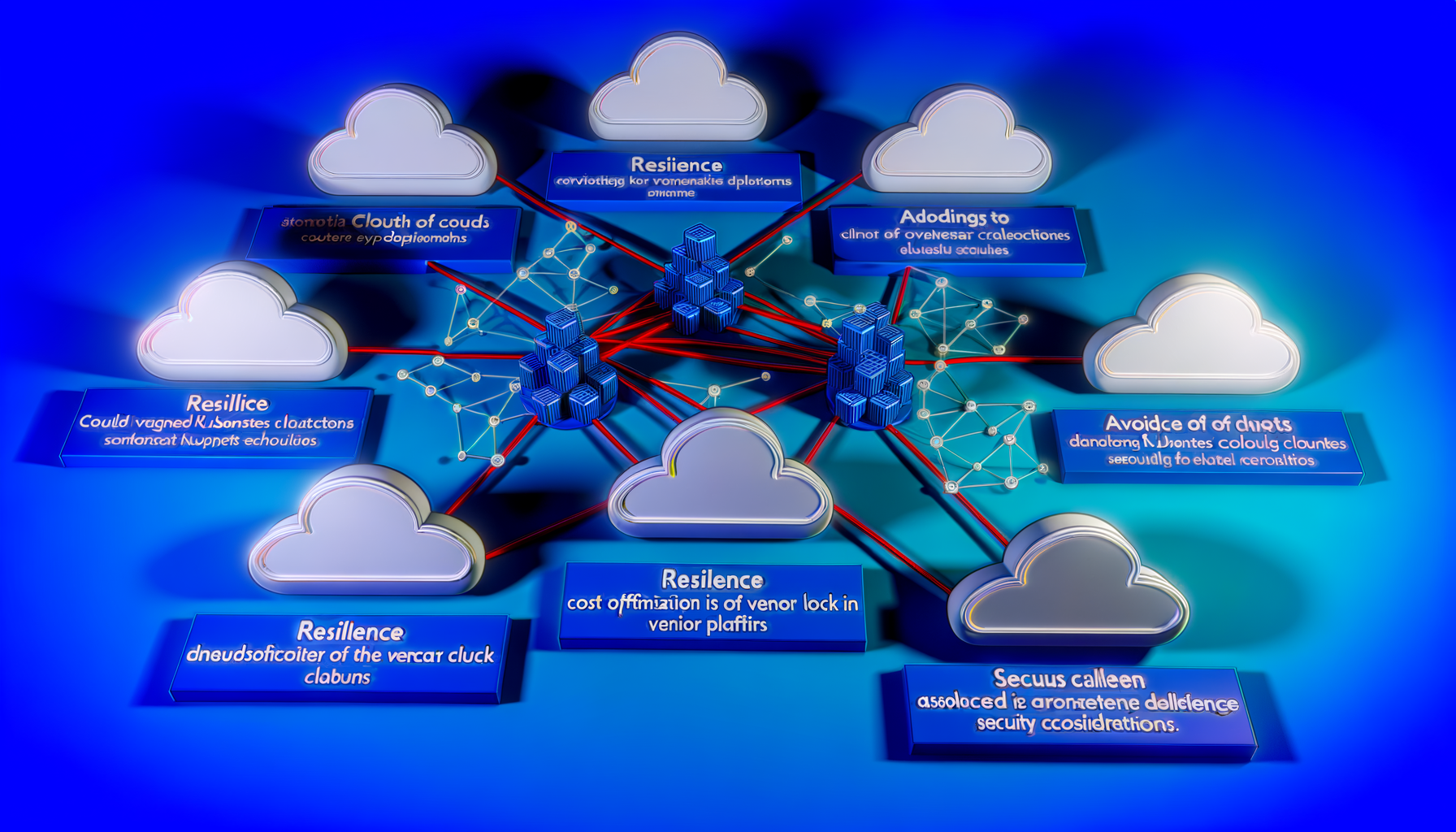Introduction
The article discusses the paramount importance of multicloud Kubernetes deployments in modern enterprises. It highlights how enterprises are increasingly adopting a multicloud strategy to leverage various cloud platforms’ unique benefits, enabling greater flexibility, redundancy, and avoidance of vendor lock-in.
What is Multicloud Kubernetes?
Multicloud Kubernetes refers to the deployment and management of Kubernetes clusters across multiple cloud environments. This approach allows businesses to optimize their workloads by taking advantage of the diverse features and pricing models offered by different cloud providers.
Benefits of Multicloud Kubernetes
The primary benefits include increased resilience, as applications can run on multiple cloud providers’ infrastructure, ensuring higher availability and disaster recovery capabilities. Cost optimization is another advantage, as companies can select the most cost-effective solutions for their workload requirements. Additionally, businesses avoid vendor lock-in, gaining the freedom to choose or switch providers as needed.
Challenges in Multicloud Kubernetes
Despite its benefits, deploying multicloud Kubernetes presents several challenges. These include complexity in management, differences in network configurations, and ensuring consistent security policies across different environments. To successfully manage such deployments, businesses need robust tools and strategies.
Best Practices for Multicloud Kubernetes Deployment
To navigate these challenges, the article suggests best practices like adopting a common CI/CD pipeline to enhance consistency, using monitoring and logging solutions that support multicloud environments, and employing automation tools to manage the deployment process effectively.
Kubernetes Federation and Service Mesh
The article delves into Kubernetes Federation, which aids in managing multiple Kubernetes clusters as a single entity, and Service Mesh, which helps in handling microservices’ communication. These tools are fundamental in simplifying the management of multicloud Kubernetes environments.
Security Considerations
Addressing the security concerns, the article emphasizes the importance of implementing robust security measures such as securing communication between clusters, ensuring compliance with security standards, and regular monitoring for vulnerabilities.
Case Studies and Real-World Applications
The article concludes with real-world examples of companies that have successfully implemented multicloud Kubernetes. These case studies showcase the practical benefits and the clever solutions adopted to overcome common challenges.
Conclusion
In conclusion, while multicloud Kubernetes deployment involves complexity, careful planning, and adoption of best practices, it provides enterprises with significant advantages like increased resilience and cost optimization. Companies need to weigh the pros and cons and adopt suitable strategies for their specific needs.
View the original article here: https://tyk.io/blog/ultimate-guide-to-multicloud-kubernetes/




